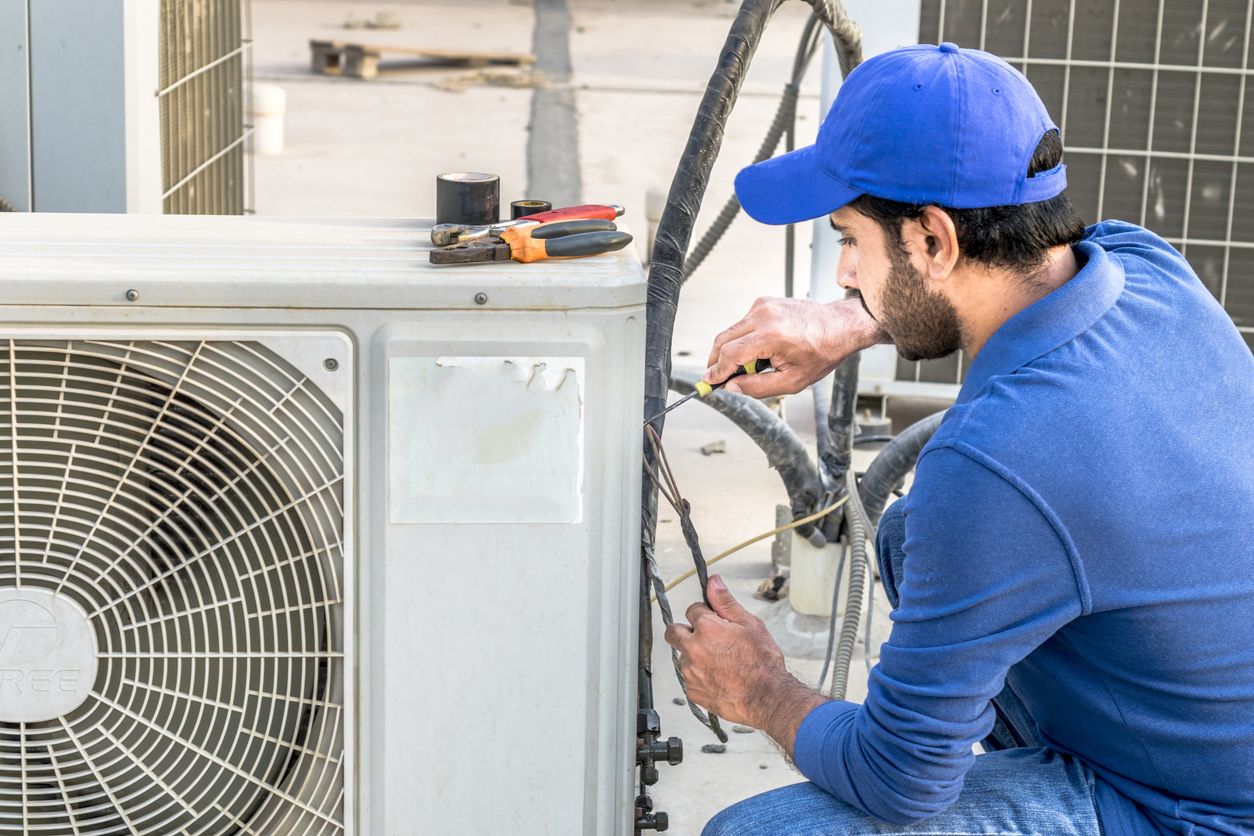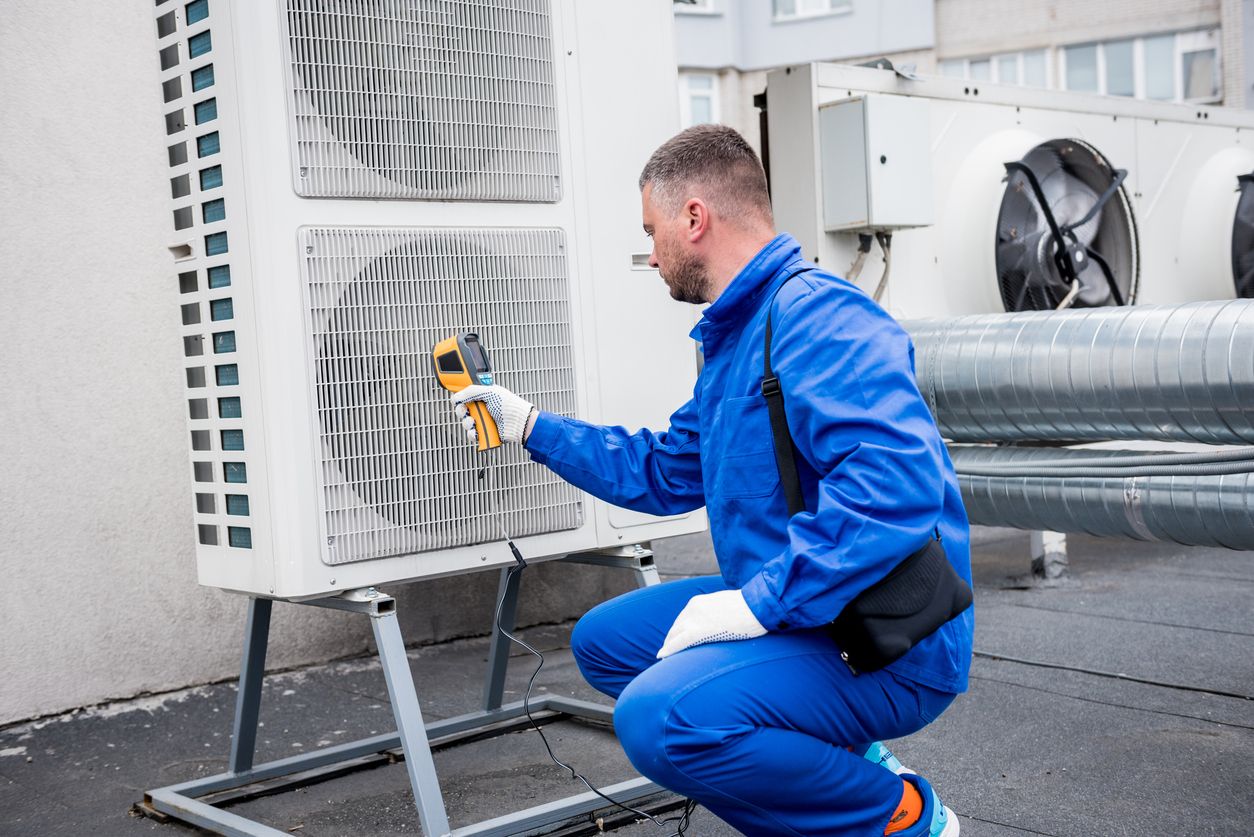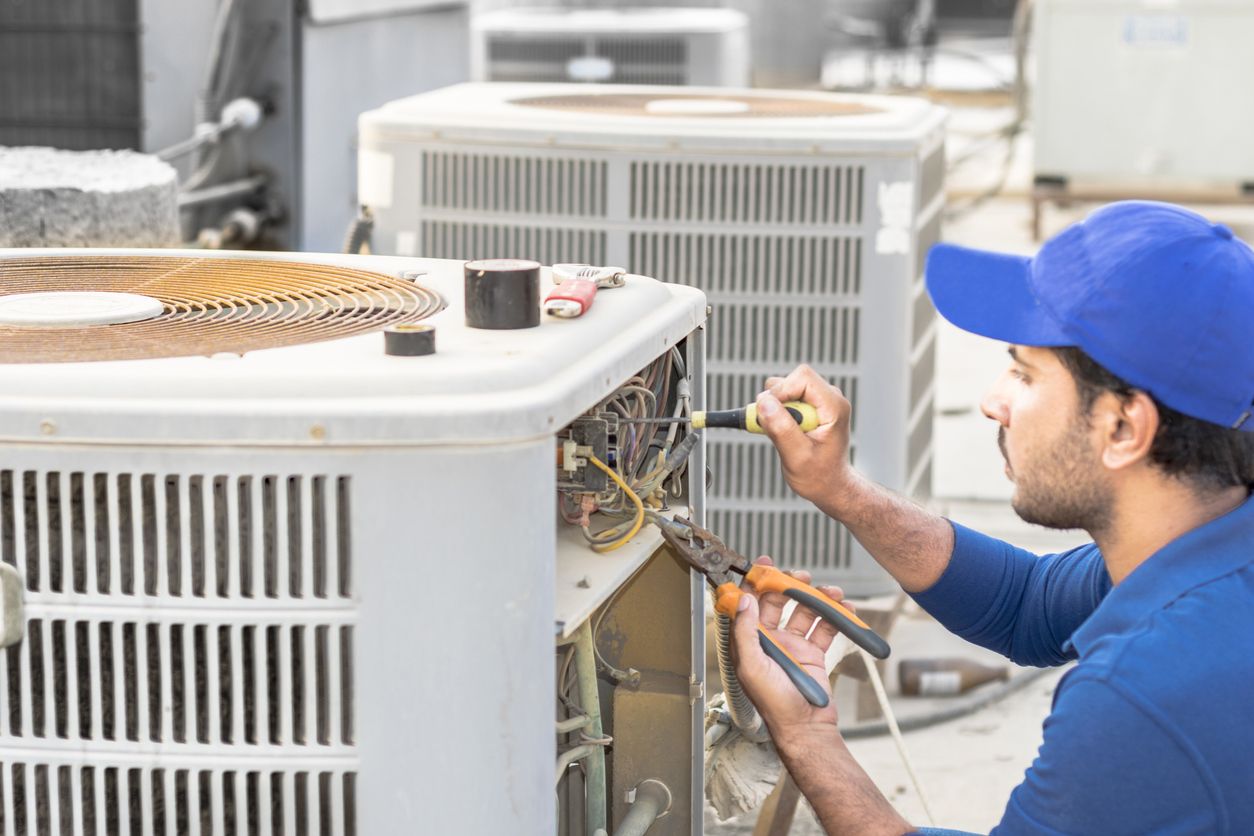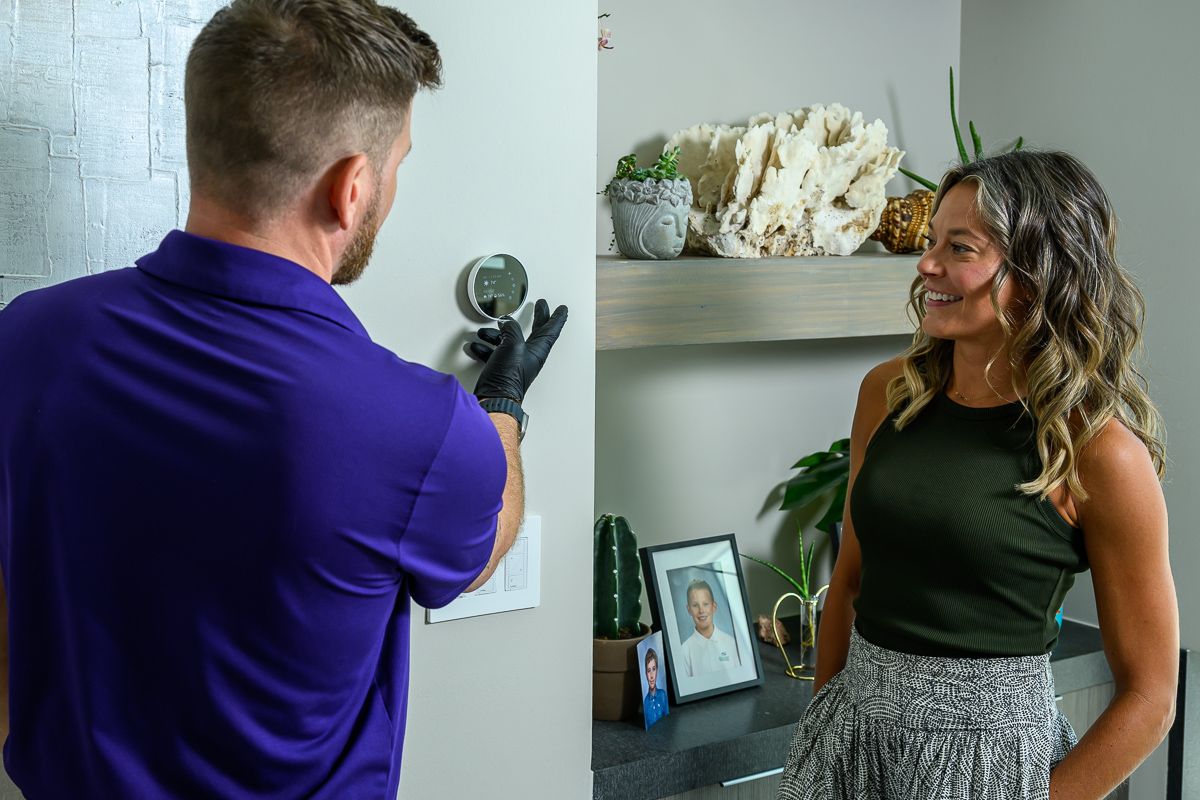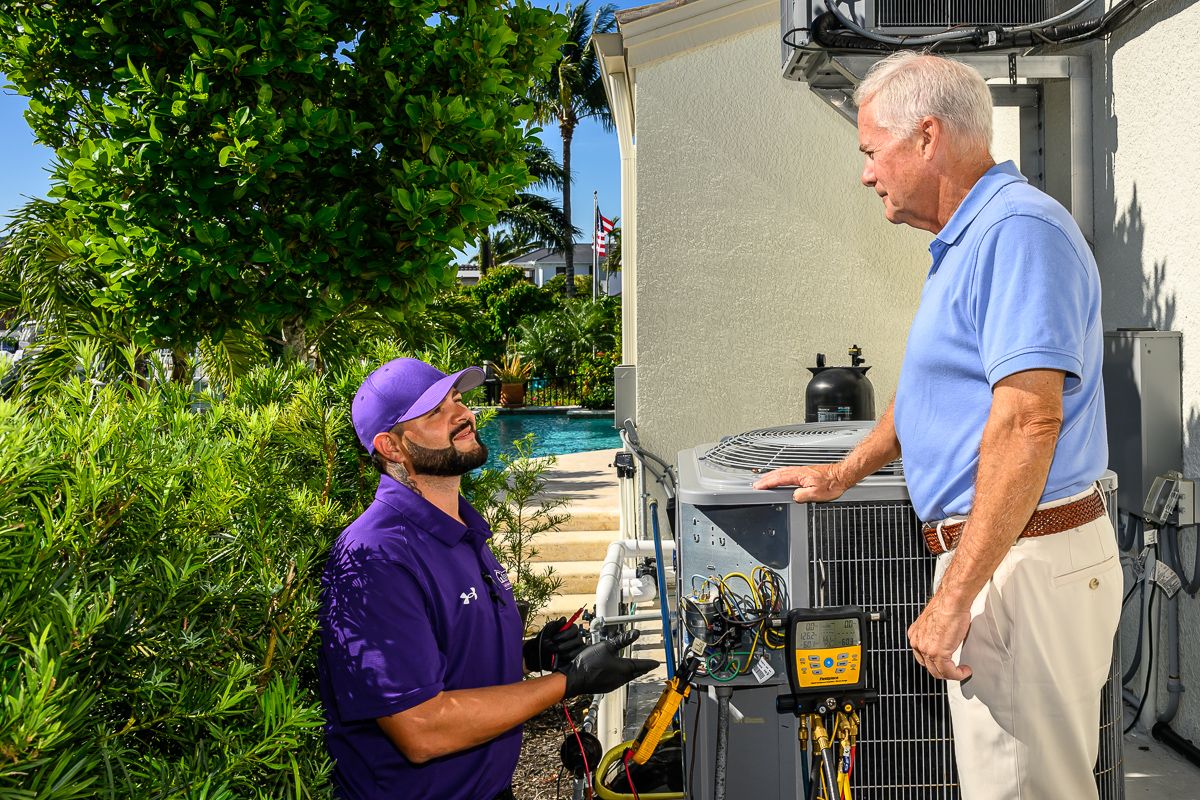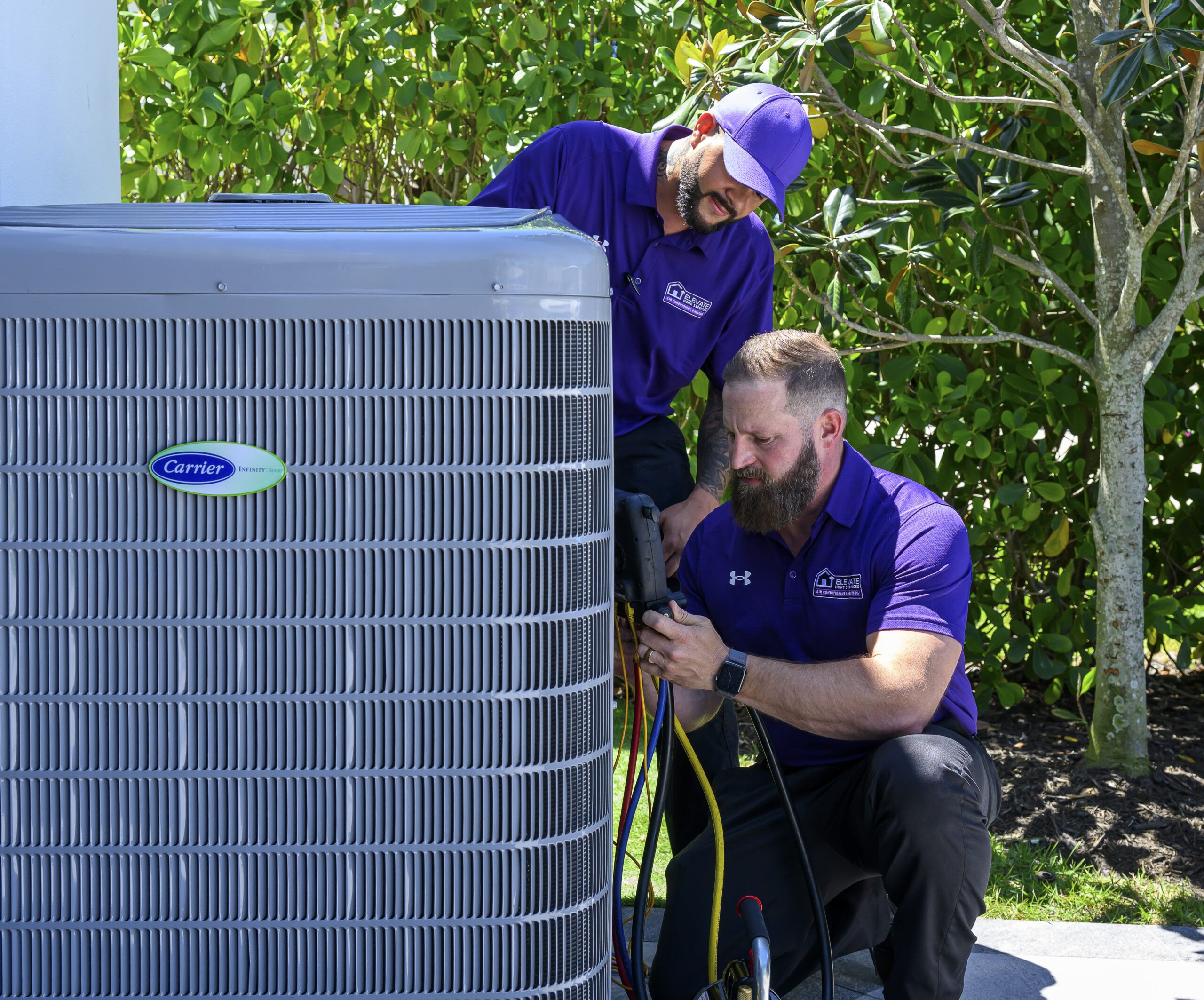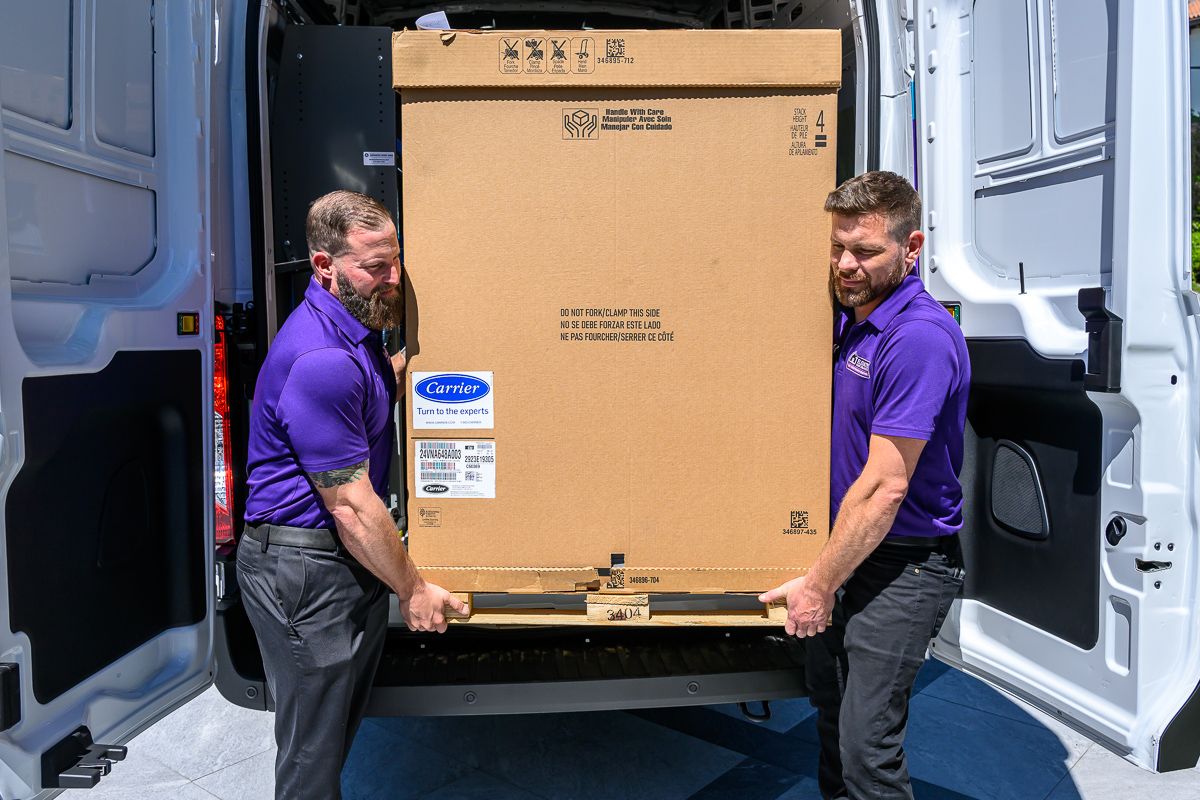Why Is My HVAC Leaking Water?
HVAC systems may experience issues over time, one of which could be water leaks. These leaks may happen because of clogged condensate drains, low refrigerant levels, or malfunctioning components. Finding the potential causes of water leakage in HVAC systems is important for homeowners to resolve the problem quickly and prevent water damage.
Reasons Your HVAC Is Leaking Water
Clogged Condensate Drain Line
The condensate drainage line is responsible for removing the moisture that your air conditioning unit collects. Over time, this line can clog up with dirt, algae, or mold, causing the water to back up and leak out of the system.
- Solution. To resolve this issue, turn off your HVAC unit and locate the drain line. Use a wet/dry vacuum to get rid of the blockage or a plumber’s snake if needed. Regular maintenance, including cleaning the drain line with vinegar or a cleaning solution, can also prevent future clogs.
Low Refrigerant Levels
When the refrigerant levels in your HVAC system are low due to leaking refrigerant lines, you may have a frozen evaporator coil on your hands. When these coils thaw, excess water will drip from the unit.
- Solution. A certified HVAC technician should check for leaks and recharge the refrigerant to the correct amount. They should also address any leaks in the refrigerant lines, as the water can harm the system and cause environmental issues.
Damaged or Rusty Drain Pan
An HVAC system leaking water could mean the drain pan is damaged or has rusted holes.
- Solution. Inspect the drain pan regularly and replace it if there are signs of damage. Ensure the replacement pan is suitable for your specific HVAC model and fits securely to avoid further leaks.
Improper Installation
If the HVAC unit was not installed correctly, it might not be level, which leads to improper drainage and water droplets pooling rather than flowing out at the proper angle.
- Solution. Assess the installation of your HVAC unit. If you suspect it is not level, contact an expert technician from companies like Elevate Home Services to realign and install the unit properly to facilitate proper drainage.
Dirty Air Filters
An HVAC unit leaking water means that it may have a dirty filter. This issue can restrict airflow, causing frozen coils and subsequent water leaks when they thaw.
- Solution. Inspect and swap out air filters every 1-3 months, depending on usage and environmental factors. Regular ac maintenance can prevent leaks and enhance overall system efficiency.
Environmental Factors
In areas with high humidity, HVAC systems may work twice as hard to dehumidify the air, increasing condensation within the area. Leaks may occur if the drainage system is insufficient to handle the moisture produced.
- Solution. Ensure your HVAC system is properly sized for your space, and consider additional dehumidifiers during peak humidity seasons to manage excess moisture levels effectively.
What to Do When Water Leaks from an HVAC Unit
- Turn Off the HVAC System. When you find water leaking from an HVAC unit, immediately switch off your HVAC system. Doing so prevents extensive water damage and reduces the risk of electrical hazards. This will minimize water leakage and allow you to check the unit safely.
- Inspect the Entire Unit. Examine the HVAC unit for signs of leakage, damage, or clogged components. Look for water pooling around the unit’s base, check the drain pan for cracks or rust, and inspect the condensate drain line for blockages. If it’s safe, look into the evaporator coil area with a flashlight.
- Contact a Professional. If you cannot fix the persistent leaks even after the many solutions you’ve done, or if you are uncomfortable performing any of the tasks, it’s best to call a professional HVAC technician. Companies like Elevate Home Services have the skills to diagnose and resolve issues that may be beyond routine maintenance.
Different HVAC Types and Their Water Drainage Locations
Central Air Conditioning Systems
Central air conditioners consist of an outdoor compressor unit and an indoor evaporator coil linked to the ductwork. The condensate drain pan collects water from the evaporator coils, which are drained through a PVC pipe leading outside the house.
- Drainage Location. The primary drain pipe usually exits through the side of the house, requiring periodic inspection for clogs or leaks.
Ductless Mini-Split Systems
These systems have an outdoor compressor and one or more indoor air handling units. Each unit has its condensate drain line, which can lead to different drainage locations depending on the installation.
- Drainage Location. The drain pipe typically runs through an exterior wall and must be inspected regularly to prevent blockages, especially at the connection points.
Window Air Conditioners
Window units are self-contained systems installed in windows or walls. They typically have a built-in drainage system to manage condensation. Water is usually drained through a weep hole at the back of the unit.
- Drainage Location: Ensure the weep holes are unobstructed to prevent overflow, especially during heavy usage.
Portable Air Conditioners
Portable air conditioners are versatile and can be moved from one room to another. They typically have a built-in water reservoir that collects the condensate, which you must periodically empty. Some models may also contain a hose to drain water continuously.
- Drainage Location. Check the reservoir regularly. If you use a drain hose, ensure it’s correctly positioned to allow gravity drainage.
Heat Pumps
Heat pumps function as two-in-one heating and cooling systems, using a process similar to that of air conditioning systems. During cooling mode, condensate is produced and directed to a drain pan and line.
- Drainage Location. The drainage is similar to central air conditioning systems, so you must periodically check the outdoor unit’s drainage line for maintenance.
Geothermal Systems
Geothermal heating and cooling systems use underground heat exchange, producing condensation. Generally, they integrate drainage systems similar to central air systems.
- Drainage Location. You must regularly monitor drainage lines to ensure they are not blocked and that water flows freely.
Avoid HVAC System Damage by Resolving Water Leaks Fast
With the different ways an HVAC unit can leak water, it’s important to fix the problem as quickly as possible. Electricity and water never go well together, so it should be handled immediately using proper methods and equipment. It may be dangerous for some, so the best choice is to hire Elevate Home Services to fix the HVAC’s leaking water issue.
Contact us today so our HVAC technicians can find out why your HVAC unit is leaking water in the wrong place.
